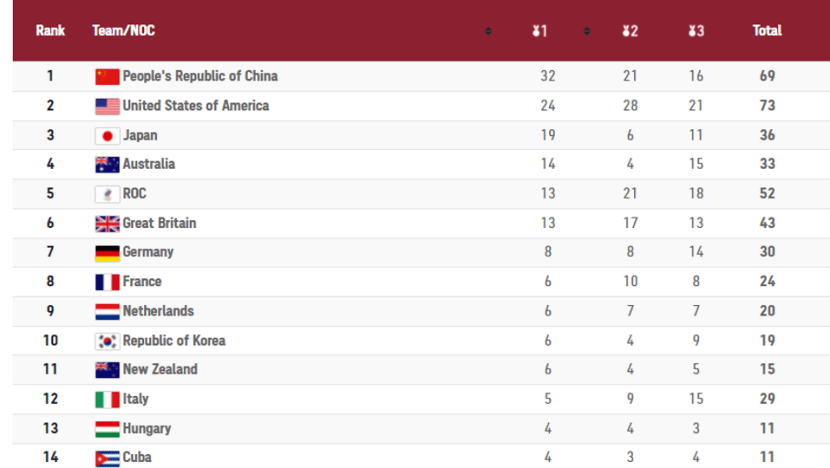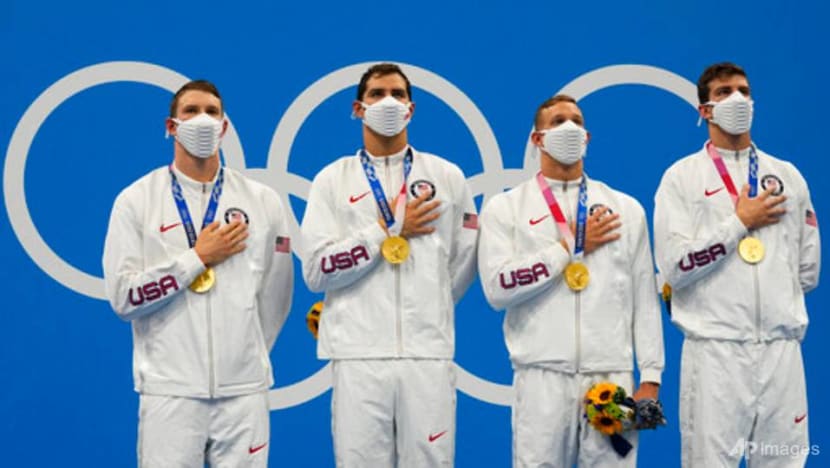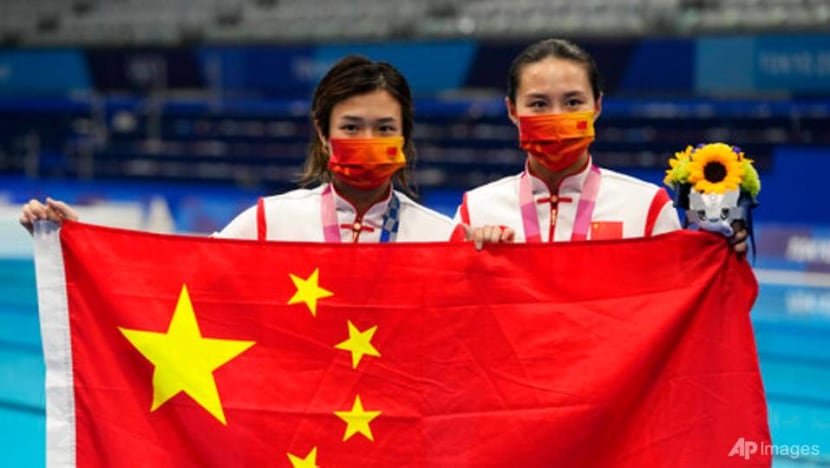Commentary: The Olympics medal tally skews towards bigger and richer countries
In an unhealthy pursuit of more Olympic medals at all costs, perhaps it’s time to reconsider the usefulness of the medal tally, says John Duerden.

The Tokyo Olympics medal tally as of Aug 4, 2021. (Image: Screengrab from Olympics website)
SINGAPORE: "The most important thing in the Olympic Games is not winning but taking part; the essential thing in life is not conquering but fighting well."
Those words were once attributed to Baron Pierre de Coubertin, the founder of the modern Olympic Games.
And yet in sports, what matters greatly to nations are the medals around their athletes' necks. Very often, winning athletes in these Olympics almost always likely come from the big players – the United States, Great Britain, China, Russia and Germany.
The top gold medal winners in Rio in 2016 were the US, Great Britain, China, Russia and Germany. The same nations were repeating the feat from four years earlier, only with South Korea pushing Germany into sixth.
These countries have the economic power and sporting history to win gold in a variety of events. A little lower down the standings are countries less able to manage competing across the entire sporting spectrum but find success in specialising in a sport.
READ: Some 'very encouraging' Team SG performances at Olympics; those who turn in disappointing performances need space: Edwin Tong
For instance, all of Kenya’s 2016 six gold medals came in running events. Cuba’s five came from boxing and wrestling while Uzbekistan excels in boxing and weightlifting. Smaller countries with smaller populations can perform miracles to win a couple of golds, silvers and bronze but are way down the rankings.
A MEDAL HAUL BUT AT WHAT COST?
In 1996, Great Britain collected just one gold at the Atlanta Olympics. Stung from that perceived failure, it then decided to invest cash from the national lottery to support athletes.
£345 million (US$479 million) went into supporting athletes at the Tokyo Olympics and Paralympics – a staggering amount that many other countries struggle to match.

“The money enables the sports to put the right structure, to find the right coaches and, crucially, it allows the athletes to be able to train full time,” Hugh Robertson, chair of the British Olympic Association, said in July. The Guardian called it a “brutal but effective” method of pursuing Olympic glory.
There has been a steady improvement. In 2016, the country finished second in the rankings above China with 27 golds.
READ: Olympics-China pulls ahead on gold medals as American Kendricks out for COVID-19
It may be good for national pride, temporarily at least. And yet surveys carried out by Sport England in 2016 and 2019 showed that the general public had actually become less physically active.
Were high-performance sports prioritised over mass participation sports that raised the general level of activity among the population and are seen as a public good? What else is sporting victory at the Olympics costing?
For the big boys like the US, funding has been ploughed into sports that yield results. Swimming, gymnastics and athletics for instance have consistently produced gold medals for the sporting superpower.
Some others decide the race to the top and the money needed to make that happen was better spent elsewhere.
Olympic historian David Goldblatt writing in The Guardian gave the example of Finland. “Ask the Finns, who abandoned the state-sponsored pursuit of medals and spent the money instead on active transport and accessible facilities.
“They barely win anything anymore, but they have the most active and healthy old people in the world. In Britain we have a sack of gold and an obesity crisis,” he wrote.
The focus on the medal table can lead to a dogged, one-dimensional pursuit of success for its own sake, as if some sort of national pride was at stake. With the games now a multi-billion dollar industry with higher stakes, it is naive to think there is a way back to simpler times.
READ: Commentary: Hidilyn Diaz, national hero for pandemic-weary Philippines
We have seen how the Games have become even more commercialised, with a ballooning number of corporate sponsors and national awards for athletes who raise the signature of sports. Just look at how much sponsorships and endorsements have pumped up Michael Phelps’ US$55 million net worth.
This is not to say the Games do not invest efforts to live up to the high sporting ideals: The participation of a team of refugees in Tokyo for the second time in these Games, for instance, provided opportunities for less privileged athletes who may otherwise not have them. The Paralympics is a paragon of inclusivity in pursuing sporting excellence.
But it is hard to put the genie that makes a direct connection between the medals table and national worth back in the bottle.
A DIFFERENT METHOD
Perhaps there could be a fairer way of calculating rankings such as predicting how many medals a country should win and then gauge performance from there.
There are “naive” models that predict the number of medals countries should get based on past performances at the Olympics.
The Financial Times has such a table, explaining that the conventional method reflects factors as “population size, economic might and past performance”. This means large, rich countries typically lead the pack, while nations that take home a modest number of medals but punch well above their weight receive little attention.

Researchers studying such factors instead rank countries by examining performance relative to expectations as the new basis for comparison. Countries that performed better than their expected total would finish highest even if they may not have collected as many medals as some of those below them.
The FT model estimates the number of medals using a formula that takes into account a number of factors including GDP, population, past performances, whether a country has hosted or will be hosting subsequent Olympics (which historically has boosted their medal haul).
READ: Commentary: We need to talk about why Joseph Schooling crashed in Tokyo
Who wins these medals should matter just as much. “Countries in which women have more equal economic opportunities send more female athletes to the Games, and more athletes mean more chances to win medals,” said Julia Bredtmann, lead author of the original study.
This would surely reflect countries’ sporting standing in a more desirable way than the current table, where it is near impossible to compete with larger powers like the US, with a population around 60 times bigger and more than 1,000 times more space for training and sporting facilities.
It could also level the playing field somewhat and give smaller nations starting to develop a niche a chance to see where they really stand.
It could also inspire others to compete seriously in a wider range of sports rather than just focusing on what they are good at.
The good news too is that positions near the top of the table will not necessarily entail the usual battle between the US and China, an extension of the superpower rivalry, and other rich countries, but a competition between a nation’s past performance and its better self.
If such a complex model is complicated to use, looking at medal per population capita could give smaller countries more credit for their achievements.
This would at least be a step in the right direction and should lessen the fixation with the number of golds said to have driven the 2016 Sochi Winter Olympics Russian doping scandals.
John Duerden has lived in Asia for 20 years and covers the region’s sporting scene. He is the author of three books including Lions & Tigers - The History of Football in Singapore and Malaysia (2017).
Catch the Olympics Games Tokyo 2020 LIVE with 14 dedicated channels on meWATCH. Sign in now at mewatch.sg/tokyo2020 and get into the action with Mediacorp, Singapore’s Olympics Network












